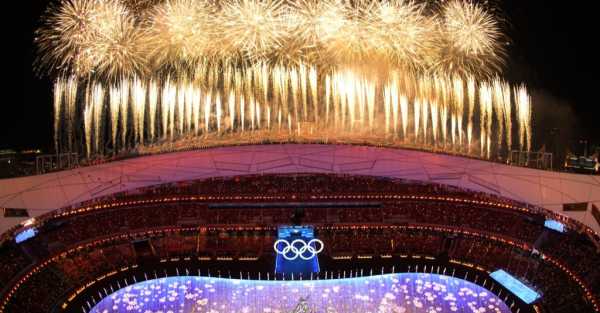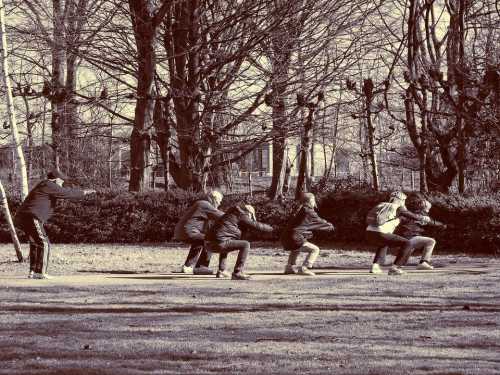
The Olympic Flame was snuffed out over Beijing’s Bird’s Nest stadium on Sunday night, concluding a Winter Games which will always be remembered as the one in which an ethereal figure skater fell to earth.
Fifteen-year-old Kamila Valieva is already back in Russia, having arrived initially to light up the Chinese capital with an otherworldly short program, before her tragic and almost incomprehensible truth emerged.
The treatment of Valieva – not just by her closest coaches who were so rightly and memorably excoriated by International Olympic Committee president Thomas Bach, but by all those complicit in the ongoing Russian doping saga including, ultimately, Bach himself – left another indelible stain on a Games that were never exactly destined to be whiter-than-white.
Soiled by allegations of human rights abuses in Xinjiang, bludgeoned into a collective state of dread and nervousness by gruellingly strict Covid protocols, locked down beneath half-empty grandstands with ‘No Cheering’ signs, Beijing was the Winter Olympics that fun forgot.
Advertisement
Sure, as always, there were inspiring moments that will live long in the memory, not least amid the unrelenting drama of the figure skating rink, on which Nathan Chen reached for the stars to the strains of ‘Rocket Man’, and Alexandra Trusova nailed five quad jumps and stormed off stage-left.
There was glorious and overdue redemption for Lindsey Jacobellis, who won two gold medals aged 36, 16 years after missing her opportunity when she crashed in the snowboard-cross with the finish line at her mercy.
And there was, of course, the thrilling final Sunday on which Eve Muirhead, having overcome setbacks and staged so many great escapes, rallied her Great Britain curling team to seal gold 20 years after Rhona Martin sent down her famous ‘Stone of Destiny’.
But elsewhere there were unrelenting tales of pock-marked drudgery and despair, anger and recrimination. The pressure told on Mikaela Shiffrin, a hot favourite for multiple individual and team medals who left Beijing with none.
There was no snow, then there was fake snow, then there was too much snow. Weather conditions in Zhangjikou became so bleak the blue riband men’s 50km cross-country was lopped to 30km, much to the dismay of Britain’s Andrew Musgrave, who turned Twitter blue in protest.
Advertisement
Meanwhile back at the seethingly alluring skating rink, Trusova ranted and raved close to Russian TV microphones as her five quads counted only for silver and her club-mate Anna Shcherbakova waltzed off with gold.
Muirhead’s late heroics, and the silver medal for Bruce Mouat less than 24 hours earlier, sploshed gloss on a fairly dismal set of British performances that surely ought to conjure serious questions about where the nation’s winter funding is best aimed.
Genuinely inspiring moments like those from 17-year-old Kirsty Muir, who scored top 10 finishes in both Big Air and slopestyle, were not matched in the sliding chutes – with an honourable exception for Brad Hall’s sixth-placed and unfunded four-man bobsleigh team – or on the short-track rink.
If Britain needs to pull back and plot a tighter and more focused winter sports future, the same can be said for the Olympic movement as a whole, having lurched and misfired through the last two, Covid-hit Olympics like a last-placed and trigger-happy biathlete.
Having stood up so eloquently to the outside forces accused of making Kamila Valieva’s life a misery, Bach was back to his smug and blustering best on Sunday as he declared the closure of a “truly exceptional” Winter Olympics.
Advertisement
The Olympic Villages, said Bach, were “outstanding”. The venues? “Magnificent”. The organisation? “Extraordinary”. Platitudes poured and bobble-hatted heads surely shook in disagreement.
There is a running joke in British media circles over the premature adoption of superlatives to describe the health of a particular Games, going back to Vancouver in 2010 when a declaration in the negative threatened to spark an international incident.
Even earlier, a national newspaper writer incurred considerable wrath when he renamed the host city of the 1981 World Athletics Championship ‘Deadmonton’, sparking the not inconsiderable wrath of his Canadian hosts.
Atlanta in 1998 is generally seen as the benchmark for dismal Olympic Games, its scant highlights and daily logistical nightmares ensuring it is often afforded such an unwanted sobriquet.
But for all its Stones of Destiny, its Rocket Men, its quad-lutzes and its triple-corks, it is difficult to dissociate the Beijing Games from the awful, abiding image of a 15-year-old figure skater unravelling before our eyes.
Factor in the closed-loop lockdown, the daily nose-prods and face masks, the haphazardly enforced social distancing, the lukewarm cabbage dumplings, the interminable missed connections and the biting cold, and it can be said with no compunction that, as an exercise in sustained joylessness, Beijing really did take the biscuit.
X
Sourse: breakingnews.ie






